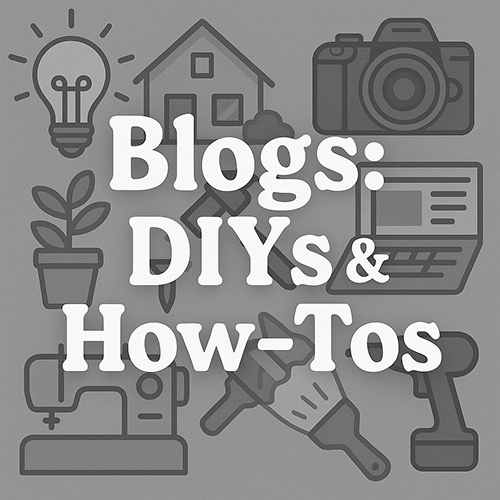Lower Blood Pressure Naturally
Hypertension, or high blood pressure, is often called the "silent killer" because it quietly damages blood vessels and organs over time often with no obvious symptoms until major complications like heart attacks or strokes occur. According to the World Health Organization, over 1.28 billion adults globally suffer from elevated blood pressure, and nearly half are unaware of their condition. The good news? You don’t have to wait for medication to take control. Lifestyle changes backed by scientific research can significantly reduce blood pressure, sometimes to normal levels.
Here’s your comprehensive guide to safe, natural strategies to lower your blood pressure and improve overall cardiovascular health.
1. Eat More Potassium-Rich Foods
What it does: Potassium helps balance out the negative effects of sodium by aiding the kidneys in excreting excess salt through urine.
Science-backed foods:
- 🍌 Bananas
- 🥑 Avocados
- 🥔 Sweet potatoes
- 🌿 Spinach
- 🫘 Beans and lentils
Supporting Study: A 2017 meta-analysis published in the Journal of the American Heart Association found that increasing dietary potassium intake significantly lowered systolic and diastolic blood pressure in both hypertensive and normotensive individuals.
2. Practice Slow, Deep Breathing
Why it does: Shallow, anxious breathing triggers the sympathetic nervous system (fight-or-flight), which increases heart rate and constricts blood vessels. In contrast, deep diaphragmatic breathing activates the parasympathetic system (rest-and-digest), promoting relaxation and vessel dilation.
Technique: Try the 4-7-8 method:
- Inhale through your nose for 4 seconds
- Hold your breath for 7 seconds
- Exhale slowly through your mouth for 8 seconds
- Repeat for 5 cycles, 2-3 times a day
Scientific Basis: Research in Hypertension Research showed that patients who practiced slow breathing daily for 8 weeks saw significant reductions in both systolic and diastolic pressure.
3. Reduce Sodium Intake
What it does: Sodium causes the body to retain water, increasing blood volume and pressure on artery walls.
Tips:
- Limit processed and packaged foods (canned soups, chips, deli meats)
- Cook with herbs and spices instead of salt
- Read labels: aim for < 1,500 mg sodium/day if hypertensive
Supporting Study: A major trial known as DASH-Sodium, funded by the NIH, found that reducing sodium intake significantly lowered blood pressure especially when combined with a healthy diet.
4. Move More, Sit Less
How it helps: Regular aerobic activity strengthens the heart, enabling it to pump more efficiently and with less force. This reduces pressure on artery walls.
Best Exercises:
- 🏃 Walking (brisk pace for 30 min, 5x/week)
- 🏊 Swimming
- 🚴♂️ Cycling
- 🏋️ Strength training (2-3x/week)
Supporting Study: A 2020 review in The British Journal of Sports Medicine concluded that aerobic exercise lowered systolic pressure by an average of 5-7 mm Hg in hypertensive individuals.
5. Follow the DASH Diet
What it is: The Dietary Approaches to Stop Hypertension (DASH) is a meal plan focused on fruits, vegetables, whole grains, lean protein, and low-fat dairy.
Key Elements:
- High in magnesium, potassium, calcium
- Low in sodium, saturated fat, and added sugars
Outcomes: The original DASH study, published in The New England Journal of Medicine, demonstrated that this diet can reduce systolic pressure by 8-14 mm Hg in just two weeks.
6. Manage Stress Proactively
How stress harms: Chronic stress causes the body to stay in a state of arousal—adrenaline and cortisol spike, narrowing arteries and increasing heart rate.
Natural Stress Busters:
- 📓 Journaling and gratitude writing
- 🛁 Warm baths
- 🙏 Mindfulness meditation or prayer
- 📻 Soothing music (especially classical or binaural beats)
Study Note: A 2019 study in Psychosomatic Medicine confirmed that mindfulness-based stress reduction led to notable blood pressure improvements.
7. Limit Alcohol and Eliminate Smoking
- 🍺 Alcohol: Excessive intake (>2 drinks/day) raises blood pressure. Stick to 1/day for women, 2/day for men.
- 🚬 Smoking: Every puff damages arterial lining, raises BP, and increases heart workload.
Fact: Within 24 hours of quitting smoking, blood pressure begins to normalize. Long-term abstinence significantly reduces cardiovascular disease risk.
Final Reflections
Lowering blood pressure naturally is not about adopting a temporary fix, it’s about reengineering your daily life in a way that supports your cardiovascular system. From your morning breathwork to the food on your plate, and the movement in your day to the way you handle stress, each small shift adds up.
These evidence-backed practices are safe, affordable, and sustainable. With consistency and intention, you can reclaim your health, improve longevity, and feel more energized every single day. ❤️🫀
Next Time: Conquer Social Anxiety | What to Do When Feeling Awkward in a Crowd
Feeling drained or tense in social settings? These simple mindset and body tricks help you show up more confidently even if you're shy or an introvert.
Please go back to top & scroll gently

